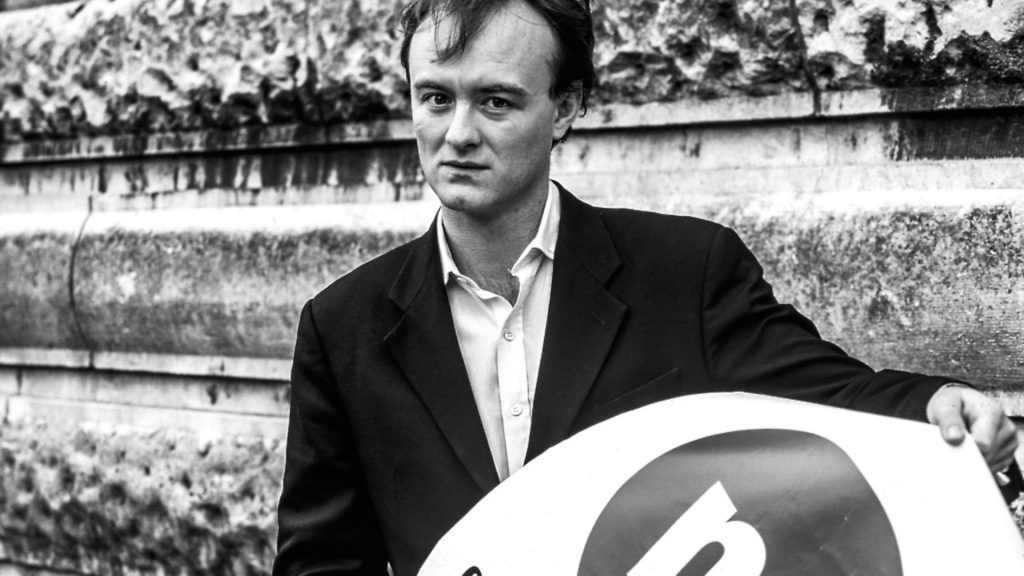
JAMES BALL on how Dominic Cummings is using political blitzkrieg to tear down UK institutions.

In a happier timeline, no-one in British politics would ever have heard of an OODA loop, and certainly wouldn’t need to worry about what on earth one was and what headaches it was about to cause.
But needless to say, we don’t live in a happier timeline: the OODA loop – an idea created in the US military by former Air Force colonel John Boyd as a means of thinking about decision-making in combat – is one of the favourite concepts of everyone’s favourite chief strategist, Dominic Cummings.
The concept behind the loop – as detailed over tens of thousands of words in Cummings’ extensive blogs – relates to the cycle of decision-making made in combat, but also in politics and other situations. They are Observe, Orient, Decide, and Act (O-O-D-A, or OODA). Each step of the process informs and modifies the others – hence ‘loop’ – and shapes the next course of action.
The idea for a fighter pilot is based on taking the information you know, the training you have, what your instruments are telling you about the enemy, and feeding all of that into your next manoeuvre.

The faster and less predictable you are, the more you disrupt your opponent’s decision-making – their experience is worth less, they have less time to take in information, they don’t know how to act. This is what is described as getting “inside their OODA loop” and is supposedly a key to victory.
It’s not hard to see why Dominic Cummings likes the concept.
Away from the world of military dogfighting, an approach based on disrupting rivals’ OODA loop looks an awful lot like a rushed, chaotic mess – largely as that’s exactly the circumstances needed. The usually sedate corridors of Westminster needs to feel like a whorl of urgent, pressing chaos, with ever-more chaos on the horizon if you do the wrong thing.
Vote for this or get no-deal. Delay this motion and you’ll get no Brexit. The prime minister won’t obey the law. Unless he will. Or he’ll obey the law but with a cunning trick so it doesn’t really count.
Nothing is predictable, everyone is confused, nothing makes sense, and – HAH! – how’s your OODA loop working now?
MPs are handling the rush with all the grace and panache we’ve come to expect from many of our parliamentarians. Conservative ministers who resigned from the cabinet over the very concept of a customs border in the Irish Sea are rushing to praise Johnson’s deal, which creates a long-term customs border in, er, the Irish Sea. Caroline Flint is accepting Boris Johnson’s word on workers’ rights over that of the Trade Unions Congress.
Cummings’ political Blitzkreig of no-deal, no letter, a deal-but-only-if-you-vote-it-through-in-45-minutes, and whatever will come next, has clearly got inside the OODA loops of many Westminster denizens. Then again, there’s every chance that continental drift would have sufficient speed and unpredictability to throw some of SW1’s finest off guard.
All of this suits Cummings himself just fine. As those around him seem inexplicably to forget, Cummings is no-one’s idea of a Conservative – including his own. He wants to transform the British state and the British nation.
He’d like to start up a UK answer to ARPA, the US Department of Defense agency that helped found the internet. He’d like to rip apart the civil service and build it anew. He certainly showed he wanted to take on the teachers’ unions and more when he worked for Michael Gove in the Department for Education.
For Cummings, Brexit, it has always seemed, is merely a vehicle towards achieving a larger goal: To revolutionise many of the institutions beloved of the political party that has elevated him to the centre of power.
The chaos, provocations and nonsense surrounding all of this are certainly palpable to those working in Westminster. Against a backdrop of daily briefings that the goal is an election… no, for no-deal!… no, for voting through this deal then passing a Queen’s speech!… no, for something else! – norms are shattering.
The details of the Withdrawal Agreement were briefed to lobby hacks by Oliver Lewis, a Number 10 special advisor nominally appointed as a policy expert – but better known to several of the journalists present as the young Vote Leave staffer who was tasked by Cummings to find the biggest number he could come up with for how much EU membership cost the UK each day, week, month or year.
And so the details of the UK’s agonisingly-negotiated future relationship with the European Union was briefed by one of the minds behind the “£350 million a week” bus.
That was just one of the incongruous moments of a past week which has been full of them – arguably culminating in the virtual kidnapping of several senior Number 10 communications staffers by a group of disgruntled lobby hacks – led by the usually mild-mannered Times political editor Francis Elliott.
The low-key affair happened after the aides attempted to sneak away last Saturday without briefing hacks on what the prime minister meant when he said he wouldn’t send a letter asking for an Article 50 extension, just hours before he did exactly that. After a few journalists blocked the exits, a briefing of sorts was given, and the aides escaped unharmed, if possibly annoyed.
In an atmosphere that febrile, from the pettiest of levels to the most serious, it’s hard for even the most established watchers of politics to know who’s on top and who’s getting their way. It’s certainly been publicly rumoured that Cummings is a man in a very literal hurry as well as a metaphorical one – it has been reported he delayed surgery to go into Number 10, and is on a strict promise to his family to make sure his stay is a short one.
For quite some time, it was general wisdom that whatever happens with the UK and the EU between now and October 31, there would be at least one parting of ways – between Cummings and Number 10. This may still be the case, though there have been reports he might stay a little longer were an election to be called, or if one seemed imminent.
But as the Conservatives feel ever-more confident of securing the hardest of Brexits – either via Johnson’s deal now, a no-deal, or through a variant of the deal after an election they’re feeling increasingly confident about it – no-one can quite work out if Cummings is back in favour or not. Is this ‘Classic Dom’? Has it happened in spite of him? What outcome does he actually want?
Such is the nature of this type of planning. It’s hard for anyone – be they a cabinet rival, opposition leader, or newly-independent backbencher – to ruin your plan if they don’t know what it is. It’s even harder for them to do so if you don’t know what it is either. Long-term occupants of Number 10, Whitehall, parliament and the Press Gallery worry about what’s to come, and how they’ll return to a sense of normality. Ministers generally need to mean what they say at the Despatch Box. Civil servants are used to being listened to, rather than treated as the enemy within. When many official government announcements come from “a Number 10 source”, journalists prefer it when that label isn’t used to spread fibs.
Institution after institution, norm after norm, convention after convention is being weakened and frayed, possibly past the point of no return. How, they wonder, will they be repaired and restitched? They forget that for some in the project, tearing those down is perhaps the point in itself – the details of what kind of Brexit gets secured be damned. If Britain is a country burdened – in your view – with an elite and an establishment that maintain the status quo and smother and stifle any real attempt to change it, then those power groups must be weakened.
The writer Robert Greene, author of The 48 Laws of Power, perhaps explains it best, with regard to that damned OODA loop. “If the pilot is too slow and conventional in his thinking, he will find himself falling further and further behind in the loops. His ideas will not keep pace with reality,” he writes.
“The proper mindset is to let go a little, to allow some of the chaos to become part of his mental system, and to use it to his advantage by simply creating more chaos and confusion for the opponent.”
Cummings doesn’t need to be a strategic genius. He doesn’t need to be thinking 16 moves ahead. He certainly doesn’t need a plan for, or even a particular favoured version of, Brexit. He just needs to be better at handling chaos than those around him – and willing to let it wreak damage on institutions he feels like deserve it. Whatever happens next, he’s certainly managed that.










